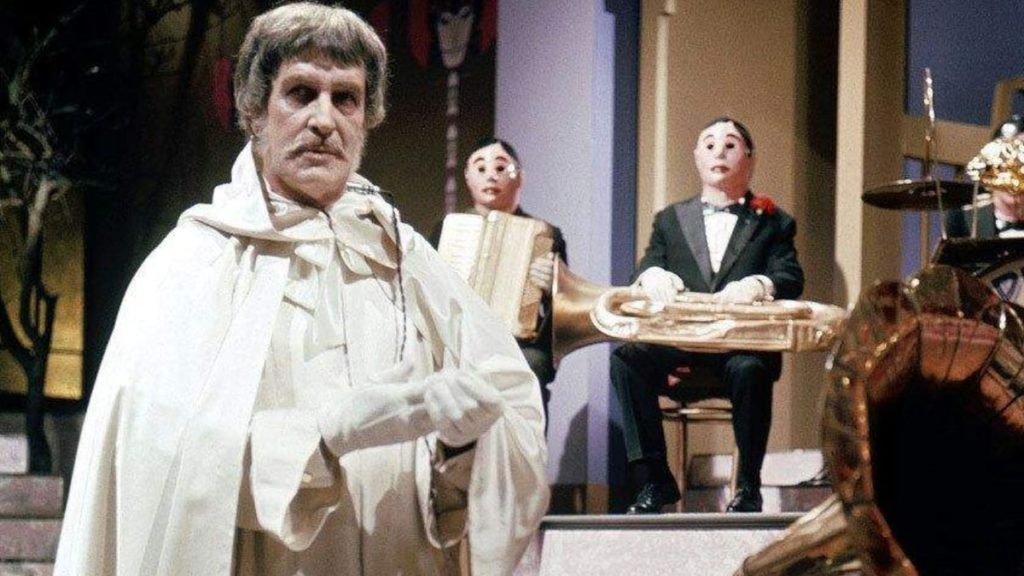Do you know how some horror movies just stick with you? In this review, let me introduce you to one that had such an effect on my much younger and more impressionable mind. It was 1971 when The Abominable Doctor Phibes hit the big screens. Now, the poster tagline, ‘Love means never having to say you’re ugly’, is certainly not exactly the quote we might remember from Love Story, released just a year earlier! It’s fair to say, though, that some of the best horror movies do, at times, have their tongue firmly in their cheek.

Regarding the plot: the film is set in the 1920s, and if it’s not familiar to you, your first question might well be…
Who was Doctor Phibes?
Well, he was Vincent Price. But, in the story, Dr Anton Phibes was a famous concert organist (as the film uses to good effect). After hearing of the death of his dear wife, he is believed to have been killed in a car crash. But, he survived, and in a disfigured and reformed state, he set out to exact vengeance on the doctors who had been treating his wife, believing them incompetent.
His ways of exacting his revenge bring us neatly to…
The Ten Plagues of Egypt
From the book of Exodus, these were trials which God inflicted on that land to punish the Pharaoh for his treatment of the Israelites. They included turning water to blood, boils, locusts and other unattractive creatures.
The good (or abominable – your choice) Doctor uses this as his text in some thoroughly innovative ways. One hint (but not a spoiler) to prepare you for the ending: the final plague was darkness.
A phibulous film?
If you like your horror laced with humor but still prepared to shock, then it’s worth introducing yourself to Doctor Phibes. If you like his company, then the sequel, Dr Phibes Rises Again, will add an extra level of pleasure.
What do you think?
If you have watched either or both of these films, we’d love to know your thoughts. Please post your comments below!
